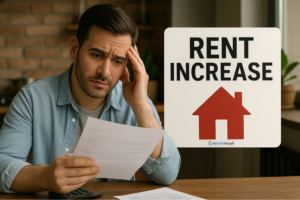In many cities across the U.S., property developers and landlords receive tax benefits as incentives to create and maintain affordable housing. These agreements often require that rents stay below market rates for a specific period — sometimes for 10, 20, or even 30 years. But what happens when that tax benefit period expires?
For many tenants, the expiration of a building’s tax benefit can lead to serious consequences, including higher rent, lease non-renewals, and in some cases, displacement. Understanding how this process works — and what protections might be available — is essential for renters facing uncertainty.
(Source: Taniel Chemsian – What Happens to My Rent When the Building’s Tax Benefit Expires?)
Why Buildings Receive Tax Benefits
Local governments frequently offer tax abatements, exemptions, or credits to property owners in exchange for setting aside a portion — or all — of their units as affordable housing. In return, owners agree to rent units at below-market rates for a fixed time.
Programs like:
-
Low-Income Housing Tax Credit (LIHTC)
-
Mitchell-Lama Program (New York)
-
Tax-Exempt Bond Financing
…have been critical in expanding affordable housing supply.
However, once these programs expire, owners regain full control over their rental pricing — and in competitive real estate markets, that often means a sharp spike in rent.
What Happens When the Tax Benefit Expires?
Once the building’s tax benefit ends, several things can happen:
-
Loss of Affordability Protections: Landlords are typically no longer obligated to maintain rents at affordable levels.
-
Significant Rent Increases: Owners may raise rents to align with current market rates, which could be hundreds (or even thousands) of dollars more.
-
Non-Renewal of Leases: Some landlords opt not to renew leases in order to bring in tenants willing to pay higher rents.
-
Tenant Displacement: For long-time residents who have benefited from stabilized or affordable rent, these changes can lead to the risk of losing their homes.
These shifts can happen quickly once the expiration occurs, leaving tenants with little time to adjust.
Are There Any Tenant Protections?
Fortunately, some areas have laws in place that offer protections even after a building’s tax break expires — but these protections vary widely depending on local regulations.
Common tenant protections may include:
-
Rent Control or Stabilization: In cities like New York, Los Angeles, and San Francisco, many apartments fall under rent stabilization laws that limit how much rent can be increased annually — regardless of a tax incentive’s expiration.
-
“Good Cause” Eviction Laws: Some cities require landlords to prove a “good cause” (such as nonpayment or lease violations) before they can evict or refuse to renew a lease.
-
Extended Affordability Agreements: Some programs extend affordability beyond the tax break period through city or state mandates.
Important: In the absence of these protections, tenants can be fully exposed to market pressures.
Practical Steps Tenants Should Take
If you live in a building that may be losing its tax benefit, here’s what you should do immediately:
-
Review Your Lease Carefully:
Understand whether your lease includes any specific protections or renewal rights that might survive the tax benefit expiration. -
Check Local Tenant Laws:
Research whether your unit is covered under rent control or other tenant protections. In some cases, protections continue even if the affordability program ends. -
Get Legal Advice:
Consult a tenant rights organization, housing lawyer, or your local tenants’ union. They can explain your rights and help you fight unfair rent hikes or unlawful evictions. -
Communicate with Your Landlord:
Politely ask your landlord for clarification about rent changes or your lease status. Try to negotiate a new lease early if possible. -
Plan Ahead:
If it looks like your rent will become unaffordable, begin searching for alternatives early to avoid last-minute disruptions.
The Bigger Picture: Housing Policy and the Future
The expiration of building tax benefits highlights a broader issue in U.S. housing policy: affordable housing is often temporary unless governments and communities find ways to preserve it.
Advocates are pushing for reforms such as:
-
Extending tax incentives longer.
-
Requiring permanent affordability in exchange for tax benefits.
-
Creating funds to help tenants stay in place after benefits expire.
Until systemic changes are made, however, individual renters need to stay informed and proactive to protect themselves.
Final Thoughts
While a building’s expiring tax benefit can bring uncertainty, being proactive, informed, and prepared can make all the difference. Know your rights, seek guidance if needed, and don’t wait until you receive a notice — planning ahead can save you a lot of stress, money, and disruption.
For more detailed information, you can read the full article here:
What Happens to My Rent When the Building’s Tax Benefit Expires?

